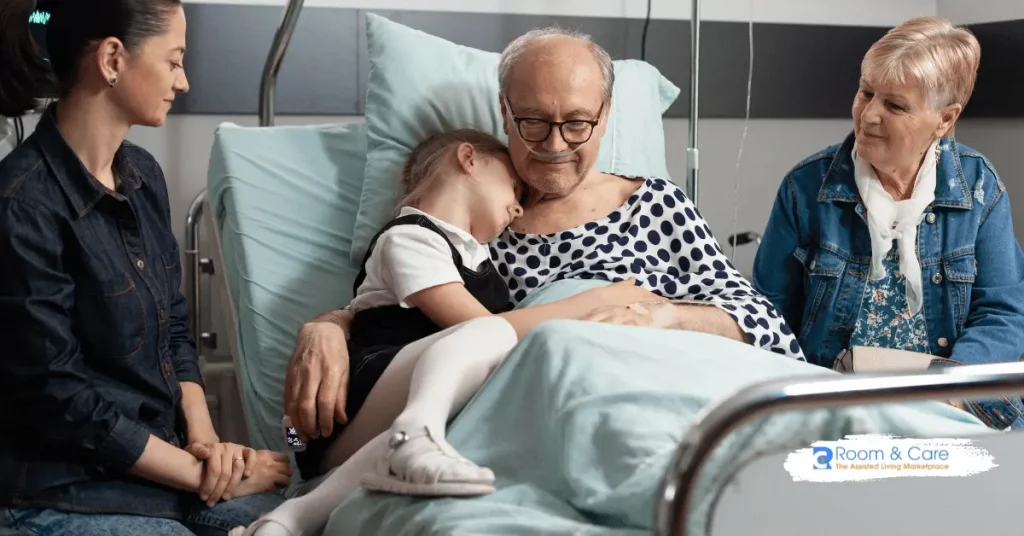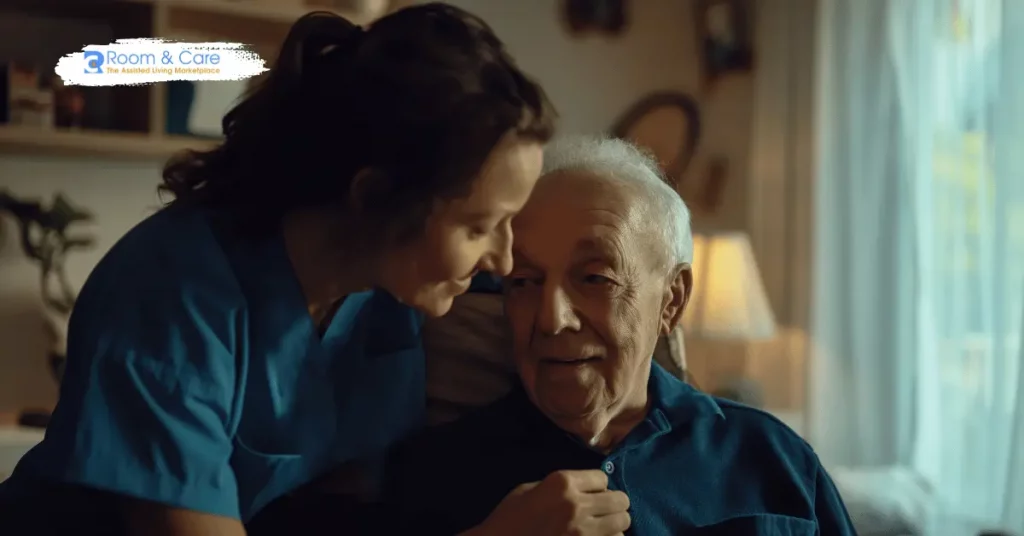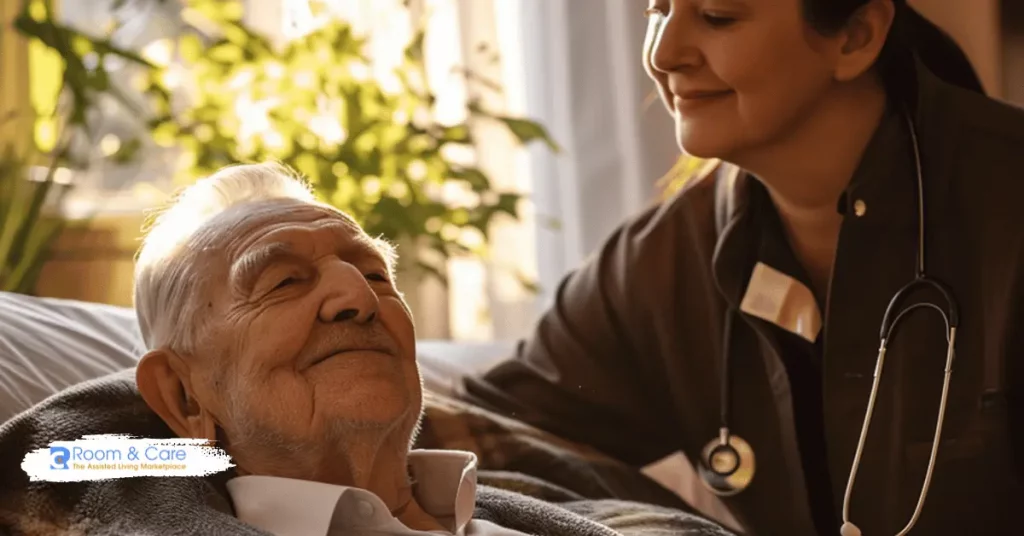

As our loved ones age, it is crucial to recognize the signs that indicate the end of life is approaching. Understanding these signs can help us provide the necessary care and support, ensuring comfort and dignity during this sensitive time. This comprehensive guide will explore the elderly signs of end of life, their significance, and the steps we can take to make this period as peaceful as possible.
Recognizing the signs of the end of life in elderly individuals is essential for several reasons. Firstly, it allows families and caregivers to prepare emotionally and practically for the inevitable. Secondly, understanding these signs can ensure that appropriate medical care and pain management are provided, enhancing the quality of life in the final days. Lastly, it enables families to make informed decisions regarding hospice or palliative care, ensuring that the individual’s wishes are respected.
One of the earliest signs that an elderly person is nearing the end of life is a noticeable decrease in appetite and subsequent weight loss. As the body prepares for the final stages, the need for nutrition diminishes. Caregivers may notice that the individual eats less and becomes less interested in food and drink.
Elderly individuals nearing the end of life often experience increased fatigue and a greater need for sleep. They may spend most of their time resting and have difficulty staying awake for extended periods. This change is a natural part of the body’s slowing down process.
Irregular breathing patterns, known as Cheyne-Stokes respiration, are common in the final stages of life. These patterns may include periods of rapid breathing followed by pauses or shallow breaths. It is important to remain calm and provide reassurance to the individual during these episodes.
As the end of life approaches, mobility and physical function decline. The elderly person may have difficulty moving, sitting up, or even swallowing. This decreased mobility can lead to an increased risk of pressure sores, so regular repositioning and skin care are essential.

Elderly individuals may withdraw from social interactions and prefer to spend time alone. This withdrawal can be a coping mechanism as they come to terms with their mortality. It is important to respect their need for solitude while offering support and companionship when desired.
Confusion and disorientation are common in the final stages of life. The individual may have difficulty recognizing familiar faces or remembering recent events. Providing a calm and reassuring environment can help alleviate anxiety and distress.
Emotional distress, including feelings of sadness, anger, or fear, can occur as the end of life approaches. It is important to offer emotional support, listen to their concerns, and validate their feelings. Counseling or support groups may also be beneficial for both the individual and their family.
Hospice care is a specialized form of care designed to provide comfort and support to individuals in the final stages of life. The primary goal of hospice care is to improve the quality of life by managing pain and symptoms, providing emotional and spiritual support, and assisting families with end-of-life planning.
One of the key benefits of hospice care is effective pain and symptom management. Hospice professionals are trained to address a wide range of symptoms, ensuring that the individual remains as comfortable as possible. This includes administering medications, providing therapies, and offering holistic treatments.
Hospice care provides comprehensive emotional and spiritual support to both the individual and their family. Chaplains, counselors, and social workers are available to address emotional distress, offer spiritual guidance, and assist with end-of-life planning.
Hospice care teams assist with daily activities such as bathing, dressing, and feeding. This support helps reduce the burden on family caregivers and ensures that the individual’s basic needs are met with dignity and respect.
When considering hospice care, it is important to evaluate the individual’s needs and preferences. Here are some factors to consider:
Hospice care can be provided in various settings, including the individual’s home, a hospice facility, or a nursing home. The choice of location depends on the individual’s medical condition, personal preferences, and the availability of caregivers.
Different hospice providers offer varying levels of services. It is important to inquire about the range of services available, including pain management, emotional support, and assistance with daily activities. Ensure that the chosen provider meets the specific needs of the individual and their family.
Hospice care is often covered by Medicare, Medicaid, and private insurance plans. It is important to understand the costs involved and verify the coverage provided by the individual’s insurance plan. Some hospice organizations also offer sliding scale fees or financial assistance programs.

Having open and honest conversations about end-of-life preferences is crucial. Discussing the individual’s wishes regarding medical treatment, pain management, and funeral arrangements can help ensure that their desires are respected.
Providing emotional support to the individual and their family is essential. Offer a listening ear, validate their feelings, and provide reassurance. Encourage the individual to express their thoughts and emotions, and seek professional counseling if needed.
Ensuring that legal and financial matters are in order can alleviate stress during the end-of-life period. This includes preparing a will, setting up power of attorney, and discussing advance directives. Consulting with a legal professional can provide guidance and ensure that all necessary documents are in place.
Keeping medical information organized and accessible is important. This includes maintaining a list of medications, medical history, and contact information for healthcare providers. Having this information readily available can facilitate communication with medical professionals and ensure that the individual’s medical needs are met.
Creating a comfortable physical environment can enhance the individual’s quality of life. This includes ensuring that the bed is comfortable, providing appropriate pillows and blankets, and maintaining a pleasant room temperature. Consider using soothing music or aromatherapy to create a calming atmosphere.
Providing emotional and spiritual comfort is equally important. Encourage the individual to engage in activities that bring them joy and peace, such as reading, listening to music, or spending time with loved ones. Spiritual practices, such as prayer or meditation, can also provide solace during this time.
Early signs of end of life in elderly individuals include decreased appetite and weight loss, increased fatigue and sleep, and changes in breathing patterns. These signs indicate that the body is beginning to slow down and prepare for the final stages of life.
Providing emotional support to a dying loved one involves offering a listening ear, validating their feelings, and providing reassurance. Encourage open and honest conversations about their thoughts and emotions, and seek professional counseling if needed.
Hospice care should be considered when an individual is diagnosed with a terminal illness and has a life expectancy of six months or less. It is important to discuss hospice options with the individual’s healthcare provider to determine the appropriate time for referral.
Legal and financial matters that should be addressed include preparing a will, setting up power of attorney, and discussing advance directives. Consulting with a legal professional can provide guidance and ensure that all necessary documents are in place.

At Room and Care, we understand the challenges and emotions associated with end-of-life planning. Our platform connects families with the best assisted living facilities, adult family homes, memory care facilities, nursing homes, and independent living communities. We offer these services with no referral fee or middlemen, ensuring direct access to the best care options and reducing costs.
Our team is dedicated to helping families find the right care setting for their loved ones. Whether you need assistance with hospice care or finding a suitable assisted living facility, Room and Care is here to support you every step of the way.
Recognizing the signs of end of life in elderly individuals is a crucial aspect of providing compassionate and appropriate care. By understanding these signs, families and caregivers can ensure that their loved ones receive the necessary support, comfort, and dignity during this sensitive time.
Take the next step today and ensure that your loved one’s final days are filled with comfort and peace.